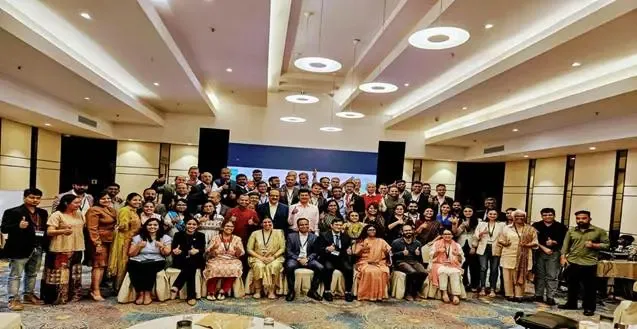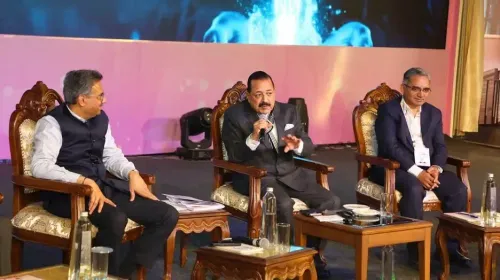NAIL 2025 Conference Emphasizes ESG Leadership for Corporate Sustainability

Synopsis
Key Takeaways
- ESG leadership is critical for corporate sustainability.
- Organizational strategies must align with global frameworks.
- Strong governance frameworks foster green tech adoption.
- Regulatory changes present both challenges and opportunities.
- AI can significantly improve ESG data analytics and reporting.
Panaji. March 2 (NationPress) The first-ever National Association of Impact Leaders (NAIL) meet 2025 convened here with a focus on enhancing ESG (environmental, social, and governance) leadership across India, aiming to promote corporate sustainability. The event emphasized the importance of aligning organizational strategies with dynamic global frameworks, as noted in an official statement.
Hosted by the Indian Institute of Corporate Affairs (IICA), the gathering attracted over 100 attendees, creating a platform for distinguished ESG professionals, policymakers, and thought leaders to share perspectives, discuss emerging trends in sustainability, and define a path for a resilient and responsible corporate landscape.
During the event, Aruna C. Newton, Vice President at Infosys Limited, underscored how strong governance frameworks can expedite the adoption of green technologies, thereby cultivating a culture of corporate sustainability. Her insights set the stage for the UNICEF’s Public Relations Associate in Private Sector Engagement to present a comprehensive analysis of the social aspects of the Business Responsibility and Sustainability Reporting (BRSR) Core, emphasizing the necessity of inclusive and ethical business practices.
A panel discussion, led by Prof Garima Dadhich, explored the significant ramifications of regulatory changes, including SEBI’s recent guidelines, the Corporate Sustainability Reporting Directive (CSRD), and the dissolution of the Sustainability Accounting Standards Board and the Task Force on Climate-related Financial Disclosures, underlining both challenges and prospects for the corporate sector.
Further enriching the conversation, a senior official from SEBI's Department of Debt and Hybrid Securities provided insights into the shifting landscape of ESG ratings, shedding light on investor expectations and the strategic modifications corporates need to adopt to stay compliant and competitive. Additionally, a representative from the corporate finance division of the market regulator offered a detailed overview of the industry benchmarks established for BRSR Core and their significant effects on companies aiming to improve ESG compliance.
Emphasizing the revolutionary potential of technology, a senior expert from KPMG India showcased the impact of artificial intelligence on transforming ESG data analytics, reporting, and decision-making processes. This seamlessly transitioned into a compelling session led by senior experts from WRI India and CEEW-CEF, who provided a thorough examination of greenhouse gas accounting methodologies and highlighted the essential role of carbon markets in advancing towards a net-zero future, respectively.
Additionally, the IICA announced the upcoming 3rd edition of its flagship annual ESG conference, organized with the support of the Ministry of Corporate Affairs, titled the National Conference on Responsible Business Conduct, set to take place on July 2-3. Registrations for this event will commence in March.










